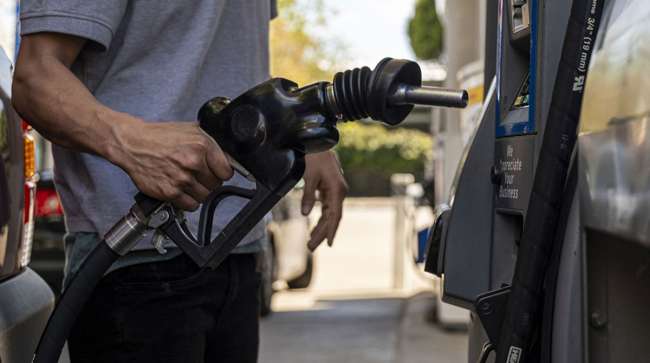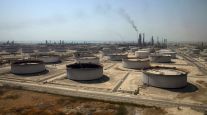Associated Press
Saudis Say US Sought One-Month Delay of OPEC+ Production Cuts

[Stay on top of transportation news: Get TTNews in your inbox.]
DUBAI, United Arab Emirates — Saudi Arabia said Oct. 13 that the U.S. had urged the kingdom to postpone a decision by OPEC and its allies — including Russia — to cut oil production by a month. Such a delay could have helped reduce the risk of a spike in gas prices ahead of the U.S. midterm elections next month.
A statement issued by the Saudi Foreign Ministry didn’t specifically mention the Nov. 8 elections in which U.S. President Joe Biden is trying to maintain his narrow Democratic majority in Congress. However, it stated that the U.S. “suggested” the cuts be delayed by a month. In the end, OPEC announced the cuts at its Oct. 5 meeting in Vienna.
Holding off on cuts would have meant implementing them just before the election — at a time when they likely couldn’t drastically influence prices at the pump.
Rising oil prices — and by extension higher gasoline prices — have been a key driver of inflation in the U.S. and around the world, worsening global economic woes as Russia’s monthslong war on Ukraine also has disrupted global food supplies. For Biden, gasoline prices creeping up could affect voters. He and many lawmakers have warned that America’s longtime security-based relationship with the kingdom could be reconsidered.
The White House has rejected any attempts to link the OPEC request to the elections, but Saudi Arabia issuing a rare, lengthy statement shows just how tense relations are between the two countries. The White House again pushed back Oct. 13, claiming some unnamed OPEC+ members had been hesitant about a cut it described as a “short-sighted decision.”
“It’s categorically false to connect this to U.S. elections,” National Security Council spokesperson Adrienne Watson said. “It’s always been about the impact on the global economy and impact on families at home and around the world, especially as (Russian President Vladimir) Putin wages his war against Ukraine.”
Ties between the two countries have been fraught since the 2018 killing and dismemberment of Washington Post columnist Jamal Khashoggi, which Washington believes came on the orders of Saudi Crown Prince Mohammed bin Salman. Meanwhile, higher energy prices provide a weapon Russia can use against the West, which has been arming and supporting Ukraine.
The statement by the Saudi Foreign Ministry acknowledged that the kingdom had been talking to the U.S. about postponing OPEC+’s 2 million barrel cut announced last week.

TT's Eugene Mulero joins host Mike Freeze to discuss the midterm elections, and what the fight for control of Congress will mean for trucking. Tune in above or by going to RoadSigns.ttnews.com.
“The government of the kingdom clarified through its continuous consultation with the U.S. administration that all economic analyses indicate that postponing the OPEC+ decision for a month, according to what has been suggested, would have had negative economic consequences,” the ministry said in its statement.
The ministry’s statement confirmed details from a Wall Street Journal article this week that quoted unnamed Saudi officials saying the U.S. sought to delay the OPEC+ production cut until just before the midterm elections. The Journal quoted Saudi officials as describing the move as a political gambit by Biden ahead of the vote.
The kingdom also criticized attempts to link the kingdom’s decision to Russia’s war on Ukraine.
“The kingdom stresses that while it strives to preserve the strength of its relations with all friendly countries, it affirms its rejection of any dictates, actions, or efforts to distort its noble objectives to protect the global economy from oil market volatility,” it said. “Resolving economic challenges requires the establishment of a non-politicized constructive dialogue, and to wisely and rationally consider what serves the interests of all countries.”
Both Saudi Arabia and the neighboring United Arab Emirates, key producers in OPEC, voted in favor of a United Nations General Assembly resolution Oct. 12 to condemn Russia’s “attempted illegal annexation” of four Ukrainian regions and demand its immediate reversal.
Once muscular enough to grind the U.S. to a halt with its 1970s oil embargo, OPEC needed non-members like Russia to push through a production cut in 2016 after prices crashed below $30 a barrel amid rising American production. The 2016 agreement gave birth to the so-called OPEC+, which joined the cartel in cutting production to help stimulate prices.
The coronavirus pandemic briefly saw oil prices go into negative territory before air travel and economic activity rebounded following lockdowns around the world. Benchmark Brent crude sat over $92 a barrel early Oct. 12, but oil-producing nations are worried prices could sharply fall amid efforts to combat inflation.
Want more news? Listen to today's daily briefing above or go here for more info
Biden, who famously called Saudi Arabia a “pariah” during his 2020 election campaign, traveled to the kingdom in July and fist-bumped Prince Mohammed before a meeting. Despite the outreach, the kingdom has been supportive of keeping oil prices high in order to fund Prince Mohammed’s aspirations, including his planned $500 billion futuristic desert city project called Neom.
On Oct. 11, Biden warned of repercussions for Saudi Arabia over the OPEC+ decision.
“There’s going to be some consequences for what they’ve done, with Russia,” Biden said. “I’m not going to get into what I’d consider and what I have in mind. But there will be — there will be consequences.”
— Aamer Madhani in Washington contributed to this report.





